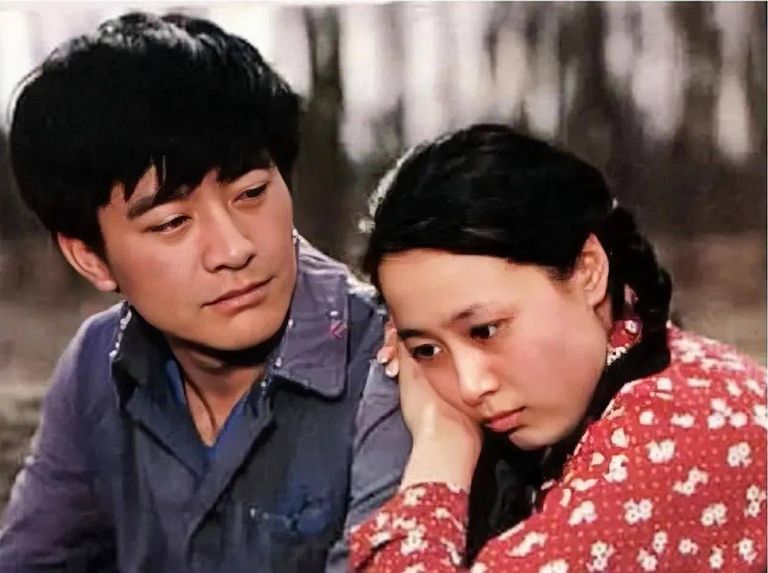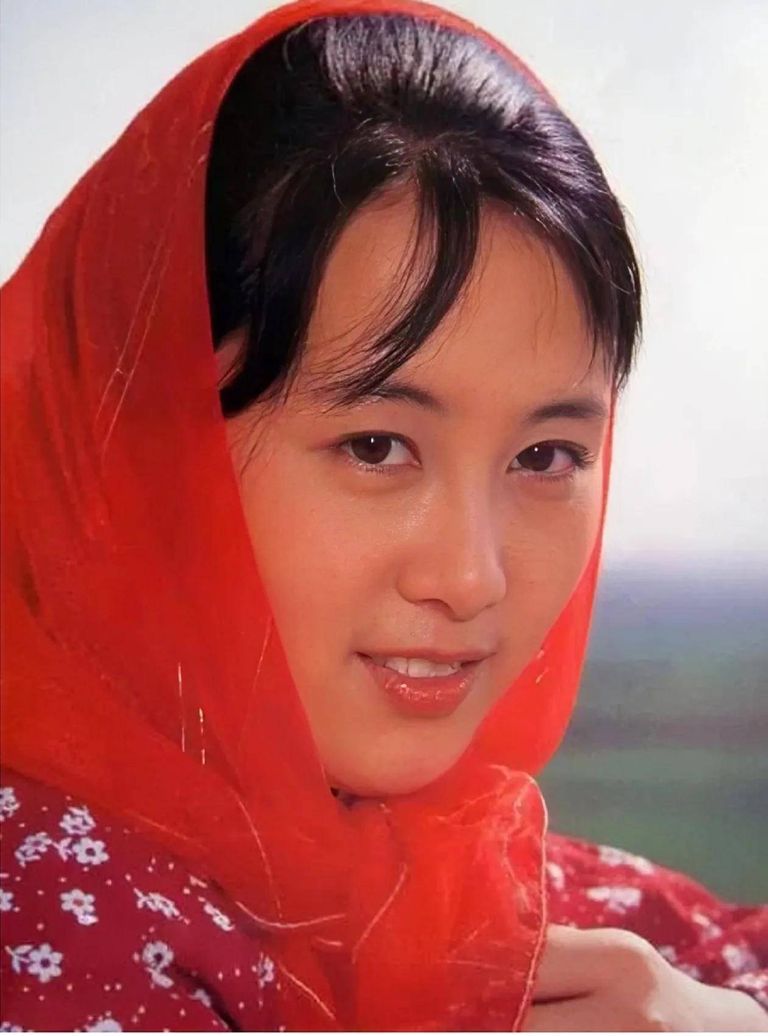
In 1982, the writer Lu Yao published his novella "Life", which made a stir in the literary world. And it was adapted into a film with the same name in 1984, which made a sensation throughout the country.
I can't remember the year when I saw this film, and maybe I was sixteen or seven years old at that time. This film touched me a lot. More than that, I felt sympathy and indignation for the unfairness of the heroine Qiaozhen's love. I thought the hero Gao Jialin was a a despicable heartless man and contemporary Chen Shimei (a notorious character in traditional Chinese opera, now a derisive title for a man who deserts his wife after successfully climbing the social ladder).
Nearly 40 years have passed. Today, when reviewing the stories in Life, I suddenly think of the story of one of my classmate around me. I am surprised to find that their life paths are so similar, which is amazing.
The novel Life takes the urban and rural life on the Loess Plateau in northern Shaanxi during the reform period as the time and space background, describes the life changing process of Gao Jialin, a senior high school graduate, who returns to the land, leaves the land, and returns to the land again, forming its story framework. The emotional entanglement between Gao Jialin and Liu Qiaozhen, a rural girl, and Huang Yaping, a city girl, constitutes a contradiction in the development of the story, which also reflects the tragedy of that difficult choice.
Gao Jialin left the countryside to go to the city, and finally returned to the countryside from the city. This was his struggle with the fate, but he failed in the end, and lost his most precious love and the golden treasure--Qiaozhen.
The experience of one of my classmates is so similar to the story of Gao Jialin.
Xiao Luo was my classmate in the technical secondary school. Like me, he came from the countryside. However, he was very literary and good at writing. However, I always felt that his personality was a little different from that of others. He was sensitive, authentic and liked to show himself. I knew that this might have something to do with his growing environment. He lost his mother since he was a child. His family was poor and he was a little wild in character.
After graduating from technical secondary school, he was assigned to a private knitting factory in the city. This is an enterprise under construction, of which conditions were very difficult. Before long, Xiao Luo was admitted as a civil servant of the District Textile Bureau by virtue of his intelligence, and was also given a small house to live in. He entered the government from the enterprise, realizing a great leap in life.
This was in the early nineties of the last century, and Xiao Luo's approach was very advanced, which was also worthy of our admiration.
In the early 1990s, the economic tide impacted everyone. Perhaps it was because he needed money badly that Xiao Luo also bought some smuggled goods from his classmates for sale. As a result, his classmates were investigated and Xiao Luo himself was punished by the organization.
Later, the textile industry was depressed, and even the textile bureau was restructured. Work staff in the bureau had been diverted to other units, but Xiao Luo had been diverted to the enterprise, and the status and establishment of civil servants had disappeared. Later, it was speculated that this might have something to do with that punishment.
Xiao Luo, who had gone to the enterprise, was even more unwilling to squat in the office and went to contract a workshop in the enterprise. However, he somehow got involved in a scandal with a female textile worker, causing a lot of trouble. Xiao Luo finally had no choice but to resign and return to his hometown.
Relying on his own hard work, he went from the countryside to the city, but after many years, he returned to the countryside from the city again.
I have been thinking hard, what's wrong with Xiao Luo and Gao Jialin? Until one day, I came across a paragraph that the writer Liu Qing said.
Liu Qing was also born in Shaanxi on the Loess Plateau, and Lu Yao called him his teacher. Liu Qing once said, "Although the road of life is long, there are often only a few critical steps, especially when people are young."
It suddenly dawned on me that Gao Jialin and Xiao Luo in their youth did not take well the key steps on their life path, and they did not go to their ways of life well, falling into the tragedy of life in the end.
1982年,作家路遥发表了他的中篇小说《人生》,轰动了文坛,大约是1984年被改编成了同名电影,轰动全国。
我已记不起是在哪一年看到这部电影的,我那时也就十六、七岁,这部电影对我的触动很大,更多的是对女主人公巧珍爱情上遭受不公的同情和悲愤,而认为男主人公高加林是当代的陈世美,是令人鄙视的负心汉。
近四十年过去了,今天重温《人生》中的故事,突然联想到身边人的故事,惊奇地发现,他们的人生之路竟是如此地相似,不能不令人惊叹。
小说《人生》以改革时期陕北黄土高原的城乡生活为时空背景,描写了高中毕业生高加林回到土地又离开土地,再回到土地这样人生的变化过程,构成了其故事构架。高加林同农村姑娘刘巧珍,城市姑娘黄亚萍之间的感情纠葛构成了故事发展的矛盾,也正是体现那种艰难选择的悲剧。
高加林离开农村去了城市,最后又从城市回到了农村,这是他同命运的抗争,可最后却失败了,而且把最珍贵的爱情——金子般的巧珍也失去了。
而我一个同学的遭遇竟与高加林的故事如此地相似。
小罗是我中专时的同学,同我一样来自农村,可他颇有文采,也写得一手好字,可总觉得他的性格与人有点不一样的地方,敏感、较真、喜欢显示自己。我知道,这可能与他生长环境有关,他从小就失去了母爱,家境贫寒,性子有点野。
中专毕业后,他分配去了市里的一家民营针织厂,这是一家正在建设中的企业,条件很是艰难。没多久,小罗便凭着自己的聪明才智考上了区纺织局的公务员,也分给了一套小房子,从企业进入了机关,实现了人生的一大跨越。
这是上世纪九十年代初的事情,而小罗的做法已是很超前,也值得我们羡慕了。
上世纪九十年代初,经济大潮冲击着人的思想,或许是急需钱的缘故,小罗也从他同学那里搞来点走私品进行销售。结果,他同学被查,小罗自己也受到了组织的处分。
后来,纺织行业萧条,连纺织局这样的单位也被改制了。局里的人都被分流去了其他的单位,唯独小罗被分流去了企业,公务员身份和编制一下子也没有了。人们猜测,这或许与那次处分有关系吧。
去了企业的小罗更不甘心蹲坐在办公室里,便去承包经营企业里的一个车间,可不知为何与一个纺织女工搞出了绯闻,闹得满城风雨。小罗最终无奈,便辞职回到了家乡。
靠着自己的努力学习,从农村走到了城市,可经历了多年,又从城市回到了农村。
我一直在苦苦思索,小罗与高加林到底错在哪里?直到有一天,我想起了作家柳青说的一段话。
柳青同样出生于黄土高原的陕西,路遥称其为自己的老师,柳青曾有一段名言:“人生的道路虽然漫长,但紧要处却常常只有几步,特别是当人年轻的时候。”
我恍然大悟,年轻时的高加林和小罗,在人生道路的紧要处都没有好好把握,没有走好关键的几步,才陷入了人生的悲剧。

Many thanks to you.
相似的人生太多了, 因为我们都只是底层的人, 村里有不少人都是那个样子, 从山村走出去, 又从城市回到了山村, 少小离家老大回, 我不认为那是错的, 因为人生苦短, 平平淡淡的一生, 或许还不如轰轰烈烈的十余年, 不少人回到老家, 虽是孑然一身, 却受到大家的称羡
感谢您的关注。走好自己的人生之路,就是最美丽的人生。祝好!
Interesting story, it is something that I have observed on other occasions and reinforces the old saying that 'sometimes life imitates art', a story that is thought for a fiction novel can reflect many features of life stories of the people.
Many thanks for your valuable comment. It's true that art comes from life. Good day to you.